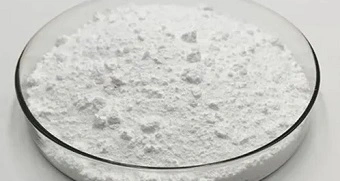Sodium Dithionite in Focus: A Powerful Reducing Agent in Industrial Applications
06 Jan 2025 • by Natalie Aster

Sodium dithionite, also called sodium hydrosulfite, is a versatile chemical predominantly utilized for its potent reducing properties. Its chemical formula, Na2S2O4, encapsulates its ability to undergo redox reactions, which is fundamental to its applications across a range of industries. Notably, sodium dithionite serves as a cornerstone in textile manufacturing, pulp and paper bleaching, and mineral ore processing.
Role in Textile Manufacturing
Enhancing Fabric Quality with Sodium Dithionite
In the realm of textile production, sodium dithionite is celebrated for its efficacy in vat dyeing and stripping unwanted color from fabrics. This chemical agent is crucial for achieving vibrant and consistent colorations on natural fibers such as cotton, wool, and silk. Its reduction mechanism allows dyes to permeate fabric fibers deeply, resulting in superior colorfastness and aesthetic appeal.
Streamlining Processes and Cost Efficiency
Furthermore, sodium dithionite contributes to cost efficiency by enabling dye reuse and reducing the need for extensive rinsing, which lowers water consumption and waste production. Its role in textile manufacturing is not only about enhancing the visual attributes of fabrics but also about promoting sustainable practices within the industry.
Pulp and Paper Industry Applications
Bleaching Agent: Transforming Pulp into High-Quality Paper
In the pulp and paper industry, sodium dithionite is a primary agent used in the bleaching process. It assists in removing lignin and other natural colorants from wood pulp without compromising the integrity of the fibers. The result is a brighter, whiter paper that is suitable for high-quality printing and writing purposes.
Environmental Benefits and Efficiency
Sodium dithionite's effectiveness at lower temperatures compared to other bleaching agents also translates to energy savings, thus minimizing the environmental footprints of paper production. Its ability to operate efficiently under mild conditions helps maintain the strength and longevity of the pulp, crucial for producing durable paper products.
Mineral Processing and Metal Recovery
Revolutionizing Ore Processing with Sodium Dithionite
In mineral processing, sodium dithionite is instrumental in the leaching and recovery of precious metals such as gold and silver. It acts as a reducing agent that facilitates the conversion of metal oxides into their elemental forms, which are easier to extract and purify.
Enhancing Metal Recovery Rates
The use of sodium dithionite in metal recovery processes not only increases yield but also diminishes the environmental impact by reducing the need for harsher chemicals and processes. This attribute makes it an invaluable component in the mining industry, where efficiency and environmental stewardship are paramount.
Concluding Thoughts
Sodium dithionite is a powerhouse in the chemical industry, offering unmatched reducing capabilities that are critical in numerous industrial processes. Its role extends beyond simple chemical reactions; it is integral in advancing environmental sustainability, enhancing product quality, and improving operational efficiencies. As industries continue to evolve, the applications and technologies surrounding sodium dithionite are expected to expand, reinforcing its status as an indispensable chemical in modern manufacturing and processing sectors.
Product Details:
Sodium Dithionite Global Market Insights 2024, Analysis and Forecast to 2029, by Manufacturers, Regions, Technology, Application
Published: December 2024
Pages: 112
Market Publishers boasts a rich collection of insightful research studies covering the chemicals and petrochemicals market, find it in the Chemicals & Petrochemicals Market Reports Catalogue.
CONTACTS
The Market Publishers, Ltd.
Natalie Aster
Tel: +357 96 030922
[email protected]
MarketPublishers.com
Analytics & News
